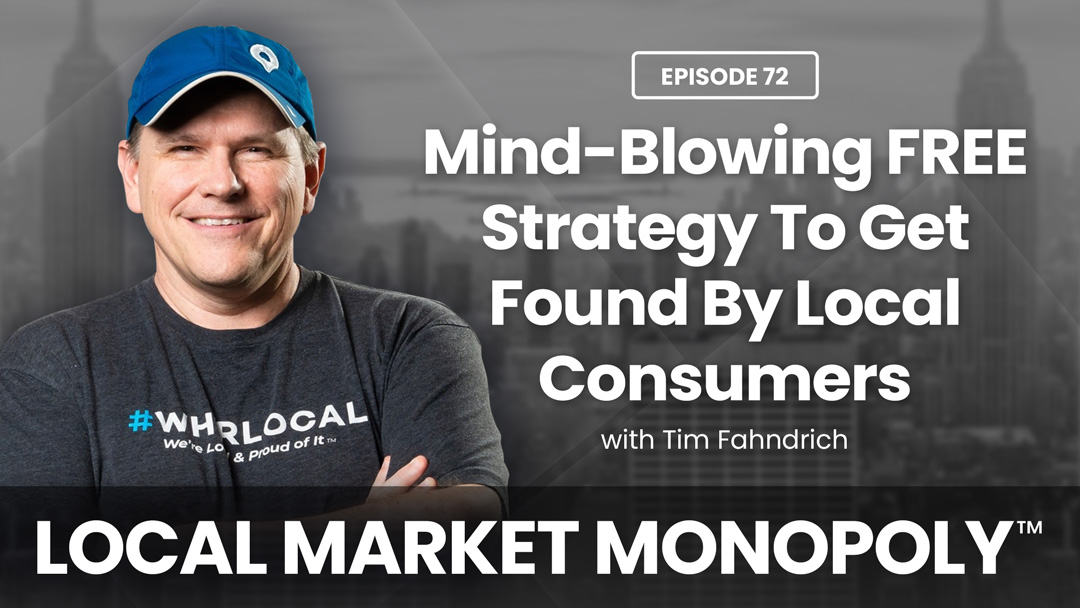Getting noticed in a crowded marketplace can be a major challenge for a small business owner. That's why I'm excited to introduce Tim Fahndrich, a local marketing expert, who shares his strategy on how to stand out and get found by local consumers in your local area in our latest podcast episode.
Tim shares a simple yet powerful strategy that can help increase your business's visibility and traffic without breaking the bank. He also provides practical tips and tricks on optimizing your online presence for local search.
This episode is a must-listen for local small business owners, heads of marketing, and entrepreneurs looking for actionable insights and inspiration. So listen to the latest episode now!










